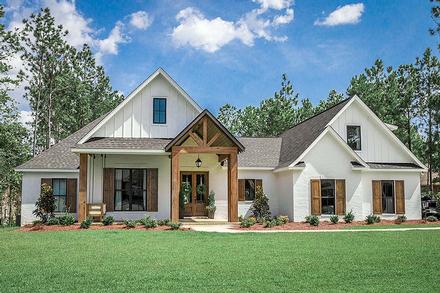
Costs for buying a home can vary greatly. Some estimates range from $43,000 to less than others. It is important to take into account many factors when calculating the cost for resitting a home. You should consider the square footage of your home, local labor costs, and construction materials. A ranch-style home with a single story can be as low as $3,500, while a Victorian-style home can easily cost over $10,000. You can finance this project almost always with your home equity.
It's not difficult to understand that the cost of resitting your home is high. An average house costs between $2,900 and $43,000. It is not surprising that homeowners are trying to find ways to reduce their costs and increase the livability of their homes. Here are some helpful tips to help you along your journey.
To estimate the cost of building a home, a contractor will give you a quote. A typical bid for a small one-story house will cost about $13,400. However, a home with two floors, two bedrooms and two baths can run up to $30,000. The good news is that most contractors offer financing options. So even those with tight budgets, they can still make their dreams a reality.
Another tip is to shop around. Many reputable contractors will be happy to give you a free estimate before they start the work. You should ask about the company's reputation for customer service and get references from past customers. The final cost of resitting your house is significant. Therefore, it's important that you hire competent professionals to do the job right.

The cost of renovating a home can vary depending on its size, construction materials, and labor costs. Resitting a property can bring beauty and worth to it. The key thing is to be able to estimate the cost of resitting. Knowing this will allow you budget properly. To finance the project, it's worth looking into a second mortgage. If you're planning to move, this may be a good idea, especially if your current lender isn't so receptive to such an endeavor. A well-executed resitting a home project can make you look like a million bucks.
FAQ
Is it more cost-effective to hire a subcontractor or a general contractor?
Hiring a general contract is typically more costly than hiring subcontractors. General contractors usually have many employees. This means that they charge their clients much more for labor. Subcontractors, on the contrary, hire one employee and charge less per hour.
How many times should I change my furnace filter?
The answer depends on how often you expect your family to use your home heating system. If you plan to leave your house for long periods of time during cold weather months, you may consider changing your filter more frequently. You may be able wait longer between filters changes if you don't often leave the house.
The average furnace filter will last approximately three months. You should replace your furnace filters every three months.
You can also check the manufacturer's recommendations for when to change your filter. Some manufacturers recommend replacing your filter after each heating season, while others suggest waiting until there is visible dirt buildup.
Can I do the whole renovation myself?
Do it yourself - you'll save time and money.
You may love DIY but there will come a time when you can't do it all by yourself. You may not be able to control all the variables.
You might discover that the wiring in your home is not up to date. In this case, you'll need to hire an electrician to ensure that your electrical system works safely and reliably.
You also need to consider the fact that you might not be able to handle any kind of structural damage that might occur during the renovation process.
In addition, you might not have the tools necessary to complete the job properly. For example, if your goal is to install a new sink in your kitchen, you will need to purchase a plumber’s snake, which is designed to clear blocked pipes.
You will also need a licensed plumber to work on your plumbing project.
It is important to understand your capabilities before embarking on such a large task.
Ask for assistance from family and friends who have completed similar tasks before if you are uncertain.
They can provide advice on the best steps to take and places to find more information.
What should I do if I want to hire an architect/builder?
It may be simpler to hire someone to help you renovate your home. If you're looking to purchase a home, an architect or builder can help you achieve your goals.
Can you live in your house while it's being renovated?
Yes, I can live in my house while renovating it.
Can you live in a house while renovations are going on? It depends on the length of the construction. If the renovation takes less time than two months, then no, you can still live in your home during construction. However, if the renovation project lasts longer than two months, then no, you cannot live in your home while the renovation is taking place.
Because of the possibility of falling objects, you shouldn't live in your home while a major construction project is underway. You could also suffer from noise pollution and dust caused by the heavy machinery used on the job site.
This is especially true when you live in a multistory house. This is because the vibrations and sound created by construction workers could cause serious damage to your property.
As I mentioned before, while your home is being remodeled, you'll have to manage the inconveniences of living in temporary shelters. You won't have all the amenities of your home.
For example, you will not be able to use your washing machine and dryer while they are undergoing repair. In addition to the unpleasant smells of chemicals and paint fumes, you will have to endure the noises made by workers.
All these factors can result in stress and anxiety within your family. Therefore, it is important to plan ahead in order not to feel overwhelmed by the situation.
When you decide to start renovating your home, it is best to do some research first so that you can avoid making costly mistakes along the way.
A reputable contractor can also be of assistance to you in order to make sure everything runs smoothly.
Statistics
- The average fixed rate for a home-equity loan was recently 5.27%, and the average variable rate for a HELOC was 5.49%, according to Bankrate.com. (kiplinger.com)
- On jumbo loans of more than $636,150, you'll be able to borrow up to 80% of the home's completed value. (kiplinger.com)
- Design-builders may ask for a down payment of up to 25% or 33% of the job cost, says the NARI. (kiplinger.com)
- Rather, allot 10% to 15% for a contingency fund to pay for unexpected construction issues. (kiplinger.com)
- They'll usually lend up to 90% of your home's "as-completed" value, but no more than $424,100 in most locales or $636,150 in high-cost areas. (kiplinger.com)
External Links
How To
How to Renovate an Old House
Before you start, it is essential that you decide which type of renovation project to undertake. This could mean anything from replacing your kitchen appliance to completely redesigning the house.
After you've determined the type of renovation you want, you should consider how much money you can spend. You might find that you don't actually have enough funds to cover the full cost of the entire project. If this is the case, then you need to make some tough decisions about which areas of the house you can afford to improve and which ones you can't.
There are many things to remember before you begin work if you have decided to do renovations. You must ensure you have all the permits needed for the job. Also, check to see if you need planning permission in order to do certain types work. For example, if you plan to add extensions to your home, you might need to apply for building consent.
Before you start work on the house it is best to check with the local council website to determine if additional permits are required. Make sure you check whether each section of the house needs to be given planning permission. You might also need to check with your insurance provider if you are undertaking major work such as installing a roof.
Next is choosing the right tools for the job. There are many different options available, so it's important to take your time to research them thoroughly. Some of the most common items that people use during their renovation projects include paint, wallpaper paste, flooring, tiles, carpets, insulation, fencing, doors, windows, lighting, plumbing, heating systems, electrical wiring, plasterboard, timber, concrete, bricks, tiling, mirrors, sinks, taps, toilets, washing machines, ovens, refrigerators, microwaves, dishwashers, vacuum cleaners, carpet cleaning equipment, air conditioning units, fireplaces, chimneys, and even garden furniture!
Be sure to consider the product's quality when choosing these products. Poor quality products can be expensive and last for a very short time. Good quality products, however, will last longer and provide more value for your money. When buying anything, it's important that you buy the right amount for the job. It is important not to buy too much, as you may end up wasting valuable resources or having to throw out large quantities of material. Instead, purchase only what you need.
After choosing the right materials for the job you should decide where to keep them while you're renovating the property. If you're remodeling a large portion of the house, you may need to rent storage space to store your materials until you're ready for them to be returned inside. You might also consider asking family and friends to move your belongings around.